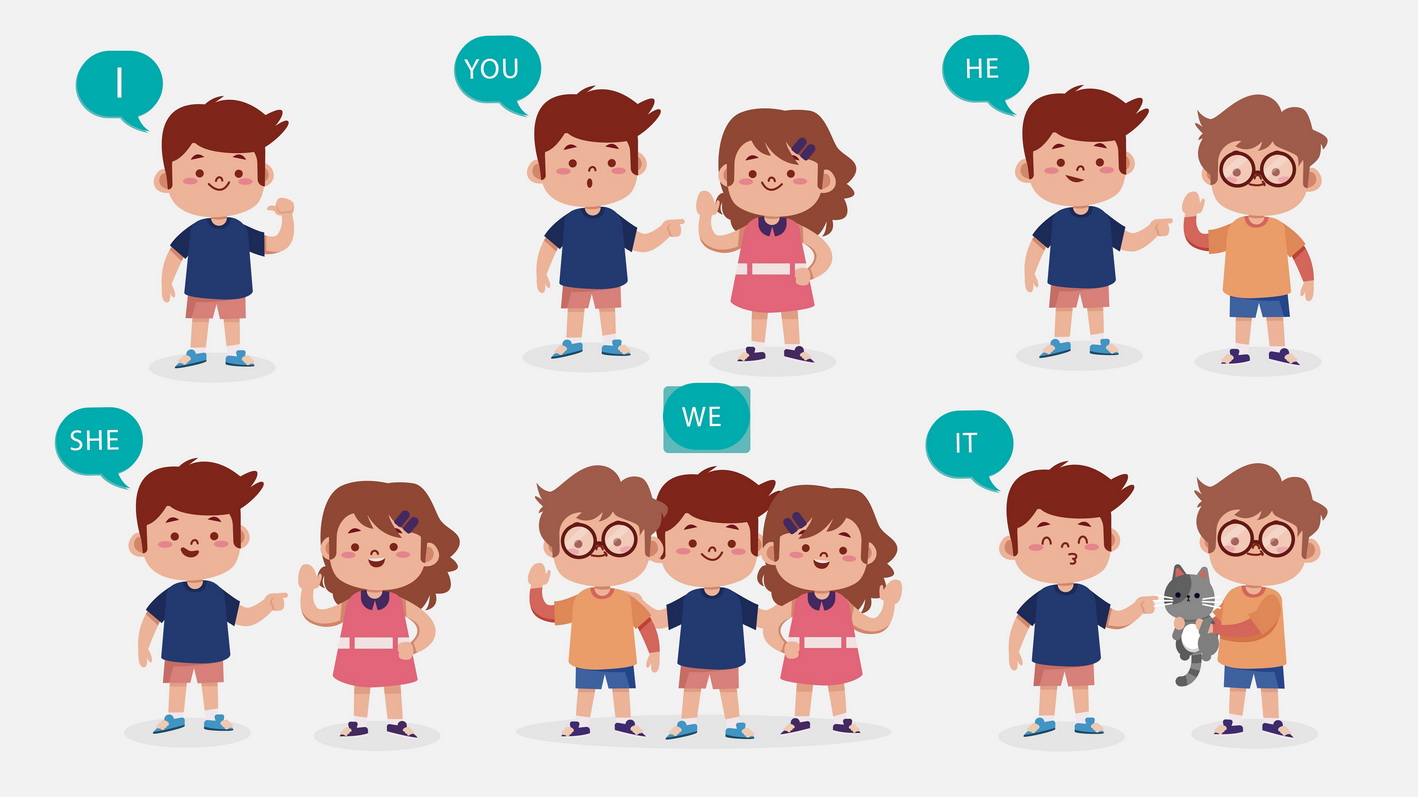Problem-Solving Skills Grammar Worksheets for Ages 5-6
5 filtered results
-
From - To
Boost your child's cognitive development with our Problem-Solving Skills Grammar Worksheets for ages 5-6! These engaging educational materials enhance both critical thinking and language abilities. Designed by expert educators, the worksheets integrate fun activities that encourage young learners to identify patterns, make decisions, and solve puzzles—all while mastering essential grammar concepts. Perfect for classroom use or homeschooling, these printables ensure a solid foundation in writing and problem-solving through interactive exercises. Empower your child to think analytically and creatively with our specially crafted worksheets that make learning both effective and enjoyable!
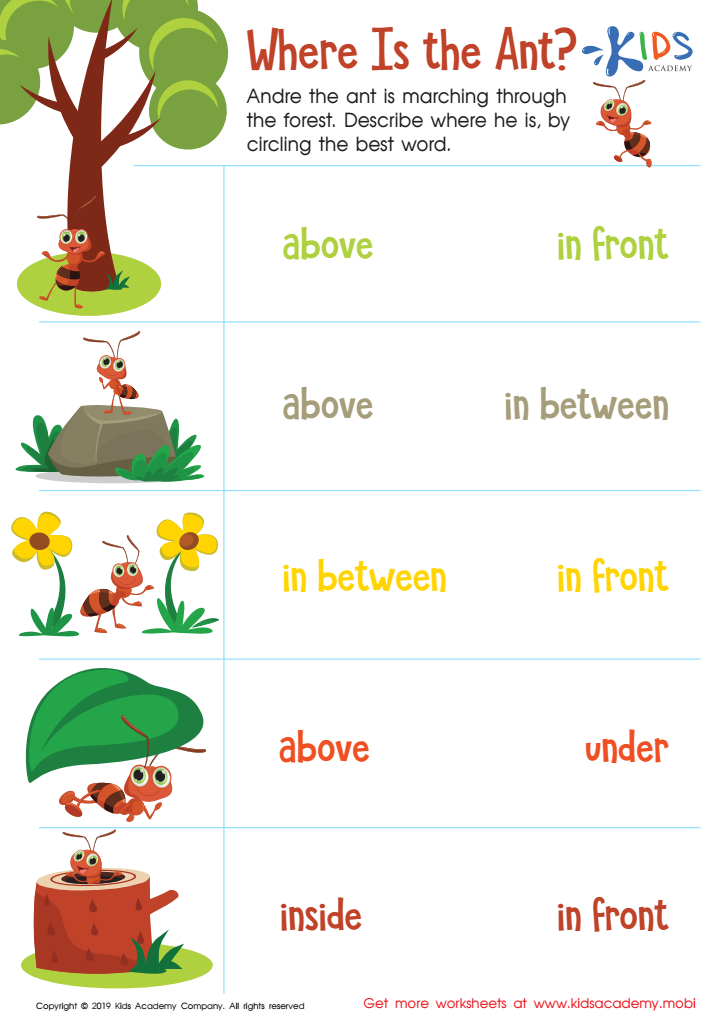

Where Is the Ant? Worksheet


Long Vowel Maze /o/ and /i/ Worksheet
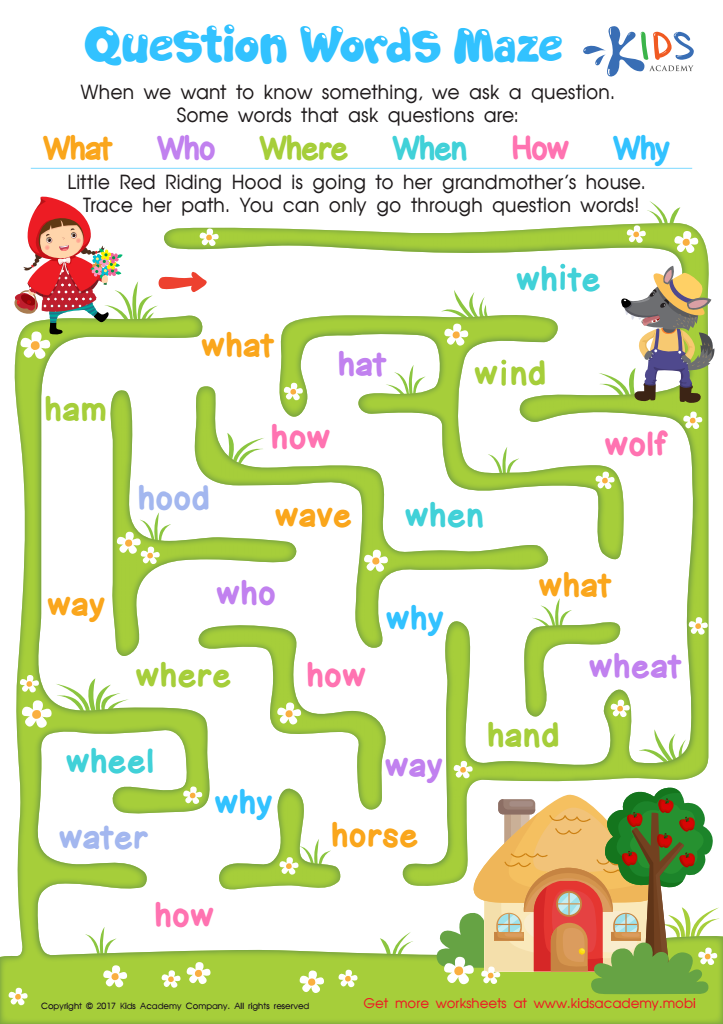

Question Words Maze Worksheet
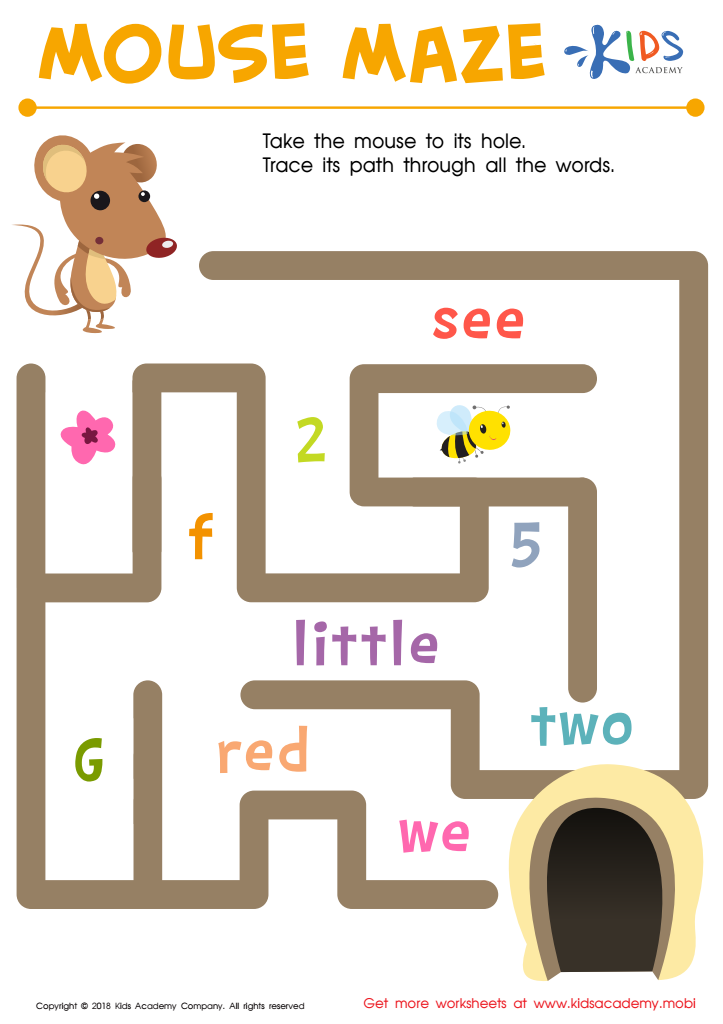

Find Words Mouse Maze Worksheet
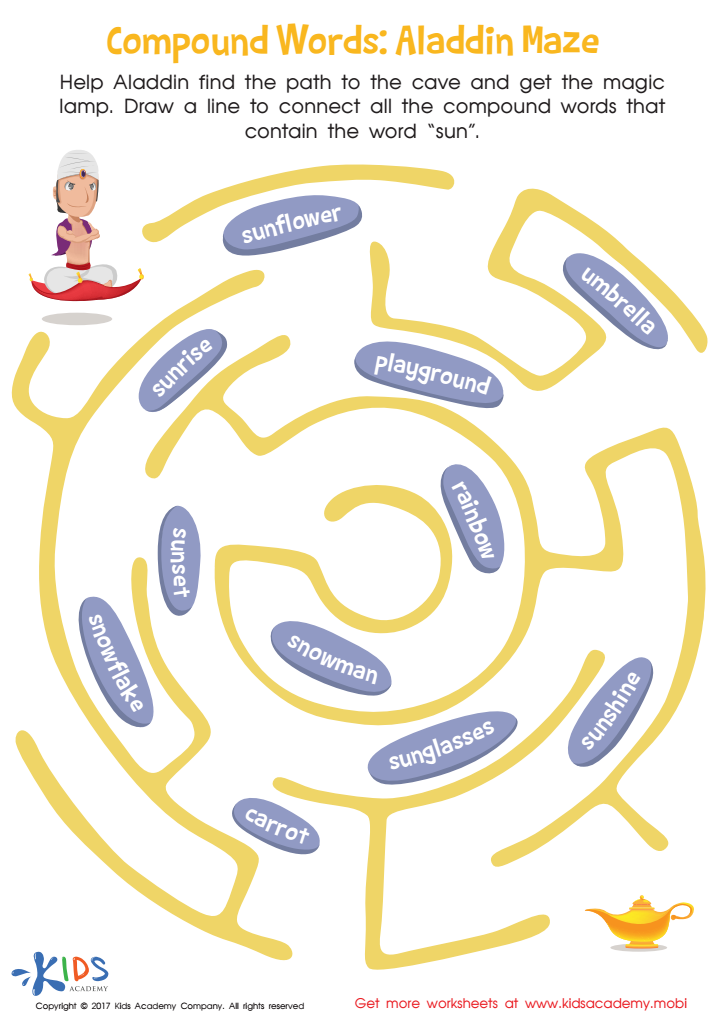

Compound Aladdin Maze Word Structure Worksheet
Problem-solving skills and basic grammar are foundational components of early childhood education, and their development should be a priority for both parents and teachers of children aged 5-6. Learning problem-solving skills at this young age helps children become more resilient and adaptable, equipping them with the ability to navigate daily challenges and think logically. By engaging children in problem-solving activities, we improve their cognitive functions, which is crucial for their overall academic success.
Simultaneously, grammar serves as the building blocks of communication. At ages 5-6, children are in a critical period for language acquisition. Proper grammar instruction helps them articulate their thoughts clearly and effectively, fostering better social interactions and collaborative learning environments. It also lays the groundwork for reading and writing skills that are imperative for academic achievement in later grades.
When integrated, problem-solving and grammar instruction enable a comprehensive cognitive development framework. Children learn to approach problems methodically, using language to communicate their reasoning. This dual focus cultivates higher-order thinking and social-emotional skills, such as cooperation and patience, leading to well-rounded development. Therefore, emphasizing problem-solving skills and grammar will set children on a path to academic success and interpersonal competence.
 Assign to My Students
Assign to My Students







